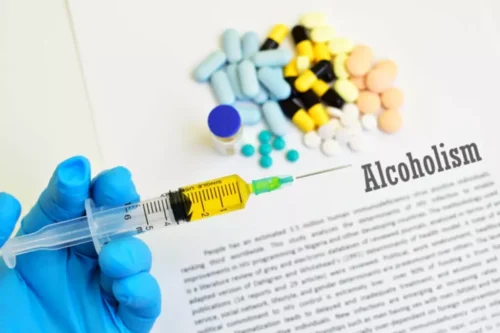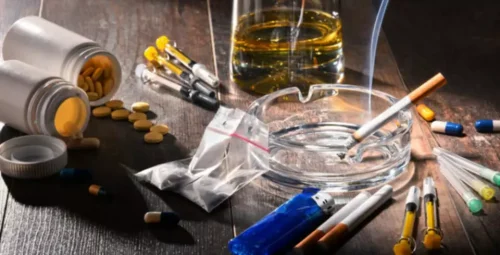
In fact, more than 414,000 children between the ages of 12 and 17 are known to be suffering from this disorder. During the 12- to 24-hour time frame after the last drink, most people will begin to have noticeable symptoms. These may still be mild, or the existing symptoms might increase in severity.
You May Feel Irritable, Anxious, or Moody
The process often requires reprogramming deeply ingrained thought patterns, and forming new behaviors. Dr. DiClemente views motivation as a series of tasks, each integral to the process of change. The challenge of this stage is to essentially develop and maintain healthy life skills that will serve you for a lifetime. An exciting part of this period is that it can lead you to a happier life full of welcomed change and constant improvement.
Stage 6: Continued Growth and Sobriety
The affects can range from dementia and intellectual functioning to debilitating conditions that require long-term care, even if a person has been sober for a period of time. Heavy alcohol consumption has been linked to more than 60 different diseases. At this point, it’s obvious to those close to you that you’re struggling.
Stage 4: Rehabilitation and Therapy

It’s essential to continue attending support groups, counseling sessions, or therapy to address any underlying issues and maintain a strong support system. Regular check-ins with healthcare professionals and therapists can provide guidance, monitor progress, and offer assistance during challenging times. Embracing a sober lifestyle involves making conscious https://ecosoberhouse.com/ choices to abstain from alcohol and adopting healthy habits that support recovery. It’s important to develop new routines and activities that promote physical and emotional well-being. By developing and incorporating these coping mechanisms into daily life, individuals can effectively navigate the challenges that may arise during their journey to sobriety.

It may also involve identifying patterns of behavior that indicate alcohol dependence. It’s the fuel that can propel someone from stages of alcoholic recovery thinking about change to actually preparing for it. However, motivation in addiction recovery isn’t a simple on/off switch.


That’s what addiction recovery can feel like without understanding the typical progression of change. By recognizing where you or a loved one is in this process, you can tailor interventions, set realistic expectations, and provide appropriate support at each stage. Inpatient rehab requires you to stay in a residential facility on a 24/7 basis until the treatment program is completed. The main benefit of seeking this kind of treatment is that you will be in a drug-free environment alongside other individuals who are experiencing the same things that you are. The treatments provided during inpatient rehab include family therapy, individual counseling and group therapy. Alcoholism is a common disorder that occurs when alcohol use becomes uncontrolled.
While every person’s journey to sobriety is unique, you may recognize yourself or a loved one in any of these stages. The recovery and rehabilitation stage involves treatment, therapy, and aftercare programs. Although you may relapse and start drinking again, these programs can help you transition to sobriety much better. Developing coping mechanisms is vital for navigating life’s ups and downs without turning to alcohol. This may involve developing healthy coping strategies such as seeking support from loved ones, engaging in relaxation techniques, or practicing mindfulness.

Medications to Ease Withdrawal Symptoms
The mental challenge of this stage is not to let anything make you feel defeated. To get insurance to cover inpatient rehab, thoroughly review your policy, ensure pre-authorization, and use in-network facilities to maximize benefits. If coverage is denied, appeal with comprehensive documentation and persistence to secure necessary treatment. While it may be tempting to rush into recovery at this point, experts actually caution against this sort of sudden action. In their book “Changing for Good,” psychologists James Prochaska, John Norcross and Carlo DiClemente warn that those who “cut short the preparation stage” are more likely to fail.
Stages of Alcoholism: Early, Chronic, and End Stage
- The acute alcohol withdrawal timeline and process looks different for everyone, and the symptoms can range from uncomfortable to potentially dangerous.
- Individuals may not progress linearly through the stages of change; some take steps forward and then regress.
- It also provides an overview of the alcohol withdrawal timeline process and when to discuss your drinking with your healthcare provider.
- This puts you at a significant risk of relapse when you try to quit drinking at home without professional help.
- In addition, there are nonprofit organizations such as American in Recovery and the National HIRE Network that specifically help those with addiction or criminal history to find work.
Many people believe that they are powerless to change their own addictive behavior, and often it is a belief that keeps people addicted. The evidence shows that every day, people choose to recover from addiction on their own. One way or another, they learn and deploy a set of skills that help them get through the strong cravings and urges of the difficult early stages of recovery. Some of the most helpful strategies for dealing with cravings are summarized in the acronym DEADS. Moreover, integrating various modalities into addiction recovery recognizes that there is no one-size-fits-all solution.

